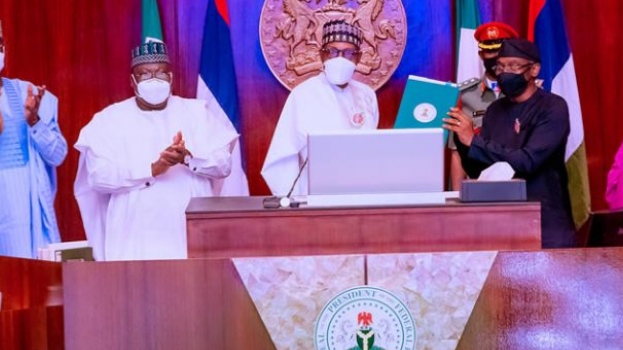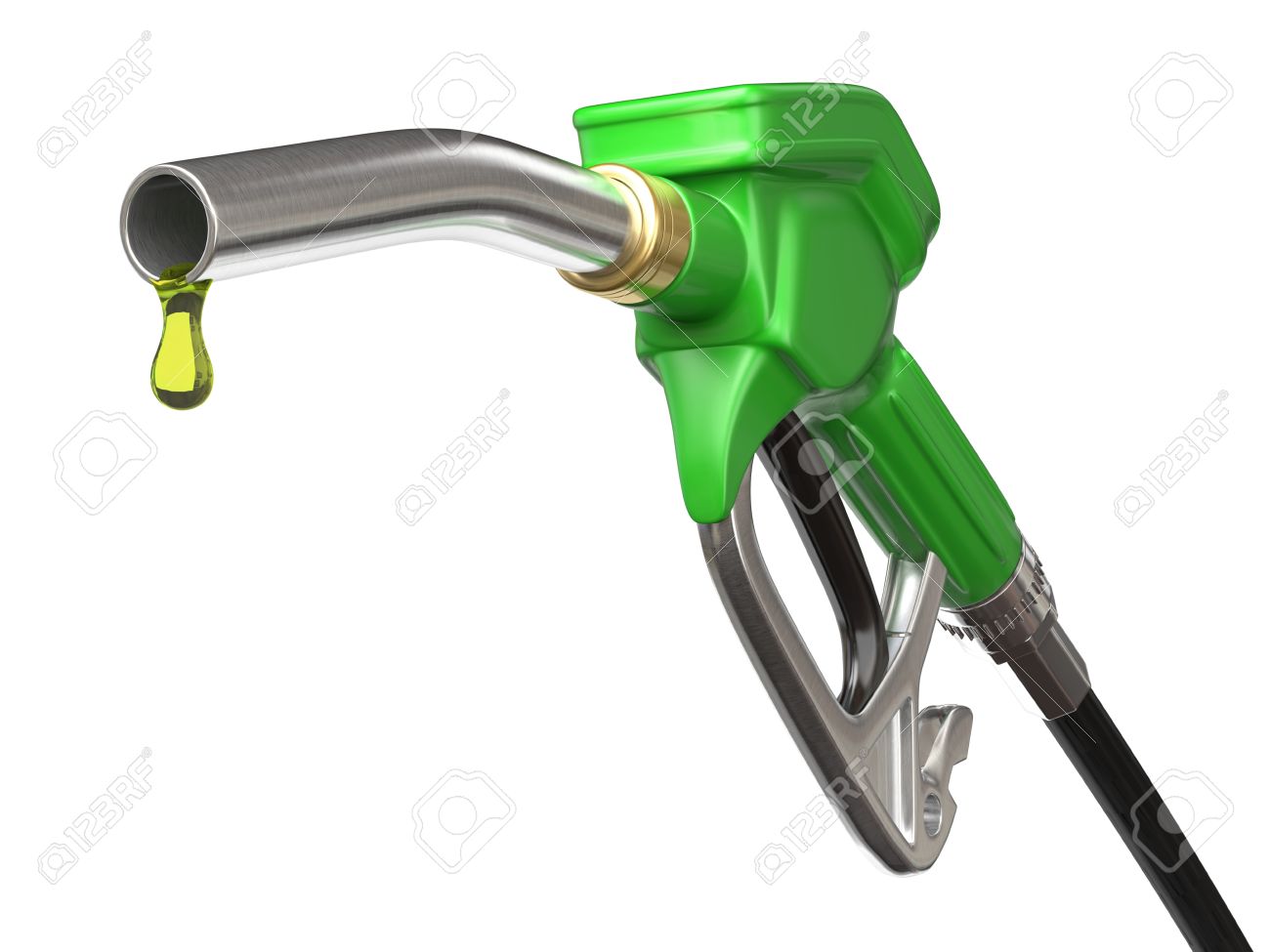Business
Presidency: Why Buhari Signed 2022 Budget Despite Insertion Of 6,576 New Schemes

The Presidency Sunday night said that President Muhammadu Buhari signed the 2022 Appropriation Bill into law despite the insertion of 6,576 new schemes worth N37 billion because he did not want to “throw away the baby with the bathwater.”
According to a statement by Garba Shehu, Senior Special Assistant to the President (Media & Publicity) which gave the president’s rationale for the action, even though Buhari had a disagreement with the National Assembly over the changes made in the budget, he was not in conflict with the legislators.
The statement accused unnamed critics of deliberately trying to create a fiasco between the president and the legislature.
Explaining the need for the president to give his assent to the budget because of the other provisions contained in it, the statement said: “Given Mr President’s commitment to improving the lot of the Common Man, it was felt that it would not be wise to throw away the baby with the bathwater. “
READ ALSO: Wike Knocks Buhari For Signing 2022 Budget Despite ‘Worrisome’ Alterations
The statement further explained Buhari’s rationale for assenting to the bill: “Mr President was clear and candid in expressing his reservations with the numerous changes to the 2022 Budget made by the National Assembly, which would hamper its implementation.
“However, to respond to critics that question why assent to the Budget if it was so severely tampered with, we wish to respond as follows:
“Need to Save Value-Additive Projects, Programs & Policies:
“Although over 10,733 projects were reduced and 6,576 new projects were introduced into the budget by the National Assembly, there are tens of thousands more provisions in the 2022 Budget, all of which, when efficiently and effectively implemented, will have a significant developmental impact on the lives and livelihoods of ordinary Nigerians.”
“Ongoing Capital Projects, Critical Recurrent Votes, Priority New Projects – all feature in the 2022 Budget and Mr President’s forbearance in assenting to the Budget will save these provisions from implementation delays and other challenges.
“Dealing with Modern Democratic Norms:
“President Buhari is a democrat who deeply believes in the supremacy of the Constitution, with its checks and balances across the three arms of Government,” it added.
The Presidency maintained that while it is true that the president expressed disagreement with insertions and the other alterations, including the ‘reduction in the provisions for many strategic capital projects to introduce ‘Empowerment Projects,’ “innumerable lies are being spread about the President being ‘angry’ at, had ‘blasted’ or ‘lashed out’ at the Parliament.
“This cannot be farther from the truth.”
The statement pointed out that as the President of the Senate, Dr Ahmed Lawan said shortly after the budget-signing ceremony, disagreements as the ones listed by the president are normal in the everyday Executive-Parliamentary relationship because, as he explained, “executive and legislative judgements don’t always have to be the same.”
The statement added: “While we note that there are people who are trying to create a fiasco between the two arms of government on account of the budget, we assure that they will, in the end, be disappointed.
“The Executive and the 9th National Assembly have since moved away from the wild, destructive political games of the past, conducting themselves in a way that puts national interest supreme in their decisions.
“We doubt if there is a patriotic citizen who wants to see the return of the operating environment engendered by the 8th Senate when an elected government was held in chains, held hostage to the desperate political ambitions of a clique, and the public denied needed services including that which impinged on national security. Happily, the 9th National Assembly is more about policy than politics.
“Under the constitution, both arms of government are coequal and at the same time, independent and interdependent. The rule of the game is cooperation and the President, as a democrat fully accepts this.”
The Presidency affirmed that it is at the discretion of the National Assembly to override the president’s action where if he had vetoed the bill, a measure, it pointed out had not been exercised under the current dispensation.
The statement further said: “In terms of the passage of legislations like the Appropriation Act and other Money Bills, the National Assembly has equal responsibilities with the Executive.
“Indeed, if Mr President had declined assent to the 2022 Appropriation Bill, the National Assembly has powers to override the President’s veto if they can drum up a 2/3 majority vote. This is the constitution.
“Happily, this situation has not arisen during the tenure of Mr President’s Administration, and the Executive’s relationship with the Leadership of the 9th National Assembly is much improved over what happened with the 8th National Assembly.
READ ALSO: Buhari Lists 15 ‘Worrisome Changes’ To 2022 Budget By National Assembly
“It is on account of his confidence in the strength of this excellent working relationship that Mr President has directed that an Amendment Budget Proposal should be prepared and submitted to the National Assembly, once they return from their recess.
“It is hoped that the National Assembly will carefully consider and approve the 2022 Amendment Budget Proposals, once presented to them in due course, for the benefit of all Nigerians.
“It is important therefore that, in place of “anger” or confrontation, President Buhari showed the democracy-loving side of his personality as he signed the budget at the same time calling for dialogue with the parliament to resolve the contentious issues.
“The Presidency under Muhammadu Buhari and the parliament under Lawal and Gbajabiamila are committed to a good neighbourly relationship and this or any other disagreement between the two arms of government will not alter the dynamics of that relationship.”
(TRIBUNE)
Business
Naira Continues Gain Against US Dollar As Nigeria’s Foreign Reserves Climb To $45.57bn

The Naira appreciated further against the United States Dollar at the official foreign exchange market, beginning the week on a good note.
Central Bank of Nigeria data showed that the Naira strengthened on Monday to N1,429.31 per dollar, up from N1,430.85 exchanged on Friday, 2 January 2026.
This means that the Naira gained N1.56 against the dollar on Monday when compared to N1,430.85 last week Friday.
READ ALSO:Naira Records Significant Appreciation Against US Dollar
At the black market, the Naira dropped by N5 to N1480 per dollar on Monday, down from N1475 traded Friday.
The development comes as the country’s external reserves rose to $45.57 billion as of Friday last week.
Business
NNPCL Reduces Fuel Price Again

The Nigerian National Petroleum Company Limited, NNPCL, has again reduced its premium motor spirit price.
In Abuja, on Monday morning, it was gathered that NNPCL retail outlets have reduced their fuel price to N815 per liter, down from N835.
This means that the NNPCL filling stations cut their price by N20.
The fresh price has been implemented at NNPCL filling stations in Wuse Zone 6 and 4 Abuja, Keffi-Abuja Road, and Kubwa Expressway.
READ ALSO:Fuel Price Cut: NNPCL GCEO Ojulari Reveals Biggest Beneficiaries
An NNPCL filling station attendant, who preferred anonymity, told DAILY POST that the new price was implemented on Sunday evening.
However, the N815 per liter is N79 higher than the N739 per liter sold at Dangote Refinery’s backed MRS filling stations nationwide.
DAILY POST recalls that NNPCL on December 19, 2025, cut its price of petrol by N80 to N835 amid a price war among players in the country’s oil downstream sector triggered by Dangote Refinery’s gantry price reduction to N699 per liter.
Business
NNPCL Announces Restoration Of Escravos-Lagos Pipeline

The Nigerian National Petroleum Company Limited (NNPCL) has announced the complete restoration of the Escravos-Lagos Pipeline System (ELPS) in Warri, Delta State, following the recent explosion on the asset.
The chief corporate communications officer (CCCO) of the nation’s oil company, Andy Odeh, in a statement, said that the pipeline is fully operational, reiterating the company’s resilience and commitment to energy security.
“NNPC Limited is pleased to announce the successful restoration of the Escravos-Lagos Pipeline System (ELPS) in Warri, Delta State.
READ ALSO:Fuel Price Cut: NNPCL GCEO Ojulari Reveals Biggest Beneficiaries
“Following the unexpected explosion on December 10, 2025, we immediately activated our emergency response, deployed coordinated containment measures, and worked tirelessly with multidisciplinary teams to ensure the damaged section was repaired, pressure-tested, and safely recommissioned.
“Today, the pipeline is fully operational, reaffirming our resilience and commitment to energy security. This achievement was made possible through the unwavering support of our host communities, the guidance of regulators, the vigilance of security agencies, and the dedication of our partners and staff.
“Together, we turned a challenging moment into a success story, restoring operations in record time while upholding the highest standards of safety and environmental stewardship.
“As we move forward, NNPC Limited remains steadfast in its pledge to protect our environment, safeguard our communities, and maintain the integrity and reliability of our assets. Thank you for your trust as we continue to power progress for Nigeria and beyond,” the statement read.

 News4 days ago
News4 days agoWhat I Saw After A Lady Undressed Herself — Pastor Adeboye

 Headline4 days ago
Headline4 days agoPROPHECY: Primate Ayodele Reveals Trump’s Plot Against Tinubu

 Metro4 days ago
Metro4 days agoArmed Robbers Shot PoS Operator To Death In Edo

 Metro3 days ago
Metro3 days agoAAU Disowns Students Over Protest

 Business3 days ago
Business3 days agoNNPCL Reduces Fuel Price Again

 Metro4 days ago
Metro4 days agoJoint Task Force Kills 23 Bandits Fleeing Kano After Attacks

 Metro3 days ago
Metro3 days agoEdo: Suspected Kidnappers Kill Victim, Hold On To Elder Brother

 Politics4 days ago
Politics4 days ago2027: Rivers APC Pledges To Follow Wike’s Instructions

 Metro3 days ago
Metro3 days agoNine Soldiers Feared Dead In Borno IED Explosion

 Metro4 days ago
Metro4 days agoGunmen Demand N200m Ransom For Kidnapped Brothers In Edo






























